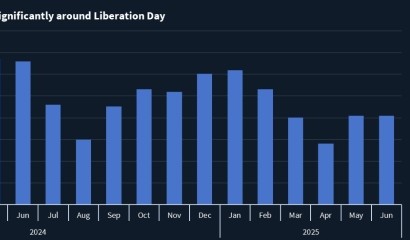End-of-year report: rights issues and GCC feed banks in year of famine
In a year of dwindling deal flow, the ECM desks once known for their niche strengths came up on top as banks fought hard for the little fee pot and league table credit out there.
When looking solely at numbers, especially compared with the exceptional 2021 track record, all major banks will be licking their wounds. But some have shown remarkable flexibility to still do deals in the hardest of years.
The Gulf region, or GCC, has been the busiest IPO market so far this year, with banks like Citi [NYSE:C] and HSBC [LON:HSBA] benefitting from strong franchises in the region. The latter made the best of a bad ECM year climbing up to third in the overall EMEA ECM ranking as of December 20, up from ninth last year. A “strong performance under difficult circumstances”, as the world’s ‘local bank’ said in its end-of-year report.
Goldman Sachs [NYSE:GS] showed remarkable resilience in a tough year and while it was well down on 2021 performance, like all major banks, it still sat top of the class just before Christmas in EMEA for 2022, likely reclaiming the crown it had lost to JPMorgan [NYSE:JPM] last year.
The bank’s strong follow-on franchise was the backbone of its offering this year, with GS defending its top spot of the league table for EMEA follow-ons, which it held in 2021, and growing its total market share by around 0.42% from last year.
The award for most improved EMEA ECM house in Dealogic’s league tables must go to Deutsche Bank [ETR:DBK] which climbed the rankings from 17th at the end of 2021 to 9th by December 20, 2022, a remarkable feat for the German bank.
US behemoth Morgan Stanley [NYSE:MS] will hope for a better 2023 in EMEA ECM alongside fellow American giant JPMorgan. Both will be crossing fingers that the slew of IPOs they have lined up for 2023 start to filter through to launch and pricing.
But sources previously speaking to this news service are more optimistic about follow-ons than IPOs, at least for the first half of next year, with the likely continuation of some of the thematic and economic drivers which paused IPO issuance in 2022; the exception is new listings in the Middle East which are expected to continue to go from strength to strength in 2023.
Block trades and rights issues were the top fee generators for banks in 2022, according to Dealogic data, a theme likely to continue for a while given the drop in underlying equity market volatility at the end of 2022. The need for companies to raise equity capital, either for balance sheet repair or possible consolidation opportunities, will add to the rationale.
A tough year means some IPO syndicate roles which haven’t yet been allocated are must haves for many bankers in 2023. “Everyone knows the market will be incredibly tough for the next year, so you want to absolutely take on certain syndicate roles,” said an ECM banker. “Every banker will be leveraging any connection and make suggestions for growth to companies they have advised in the past.”
Dealogic Revenue Ranking Data: Dealogic uses a proprietary revenue model to estimate investment banking fees across four key products: M&A, equity capital markets (ECM), bonds or debt capital markets (DCM), and loans. Fees derived from each of the three regions indicate fees generated by client fee-payers in those markets.










